Whatever happened to Bangla being our state language?
In the month of February, there's a lot of discourse around the Bangla language and literature. We see people from across the country – from Dhaka to rural areas – paying their respects to the martyrs of the Language Movement in numerous Shaheed Minars. There's a renaissance of memories, and on February 21, we get to discuss our sense of consideration, our thoughts, the ins and outs of our fight in a new light. Ekushey means not bowing our heads – that is the prevailing motto of February 21.
In the intellectual world, asking questions is the norm. The Language Movement is intimately related to the language, thoughts, and society's anti-discriminatory politics, culture, and ideals. The fight was against the persecution of a nation, and the slogan was, "We want the state language to be Bangla." Over time, the spirit was cultivated, the fight against discrimination and for freedom was fought, and that culminated to the Mass Uprising. Since then, 50 years have passed, and now we must ask the question: what happened to Bangla becoming the state language?
According to the constitution, Bangla is the state language of Bangladesh. But looking at what the state has been doing – Bangladesh's five-year plan, the state fuel policy, its 100-year delta plan, its health policy, and policies related to water resources or communication – none of it is in Bangla. All of it is in English. All the research that is being conducted about Bangladesh's people and rivers, about the state of women in this country or the eradication of poverty, are in English. Decisions are being made and contracts are being signed on Bangladesh's resources with multinational companies and foreign countries – to take on foreign debt, for example – in English.

Even those who know English find it difficult to obtain these contracts and agreements, and they have to work really hard to understand these documents. These documents not being available in Bangla means that they are detached from the people of Bangladesh. And this leads to the people of Bangladesh not knowing what is being done with their lives, with their resources, or how their future is being decided. They don't know what the government is saying about them at international forums, what promises are being made, and what sort of contracts are being signed that affect their lives and resources.
One of the main objectives after the Liberation War should have been to ensure the institutional processes were such that the practice of knowledge for all was available in their mother tongue, Bangla for Bangalees, and the same for people of indigenous communities. This was not done.
It is being said that the state language is Bangla, but there is no usage of Bangla by the state, and it is being pushed to the periphery. When it comes to the languages of indigenous peoples, the situation is even worse – they are being pushed even further to the periphery. What the state should have done right after independence was undertaking efforts to maintain communication with the knowledge creation and creative processes around the world. This communication can't be limited to those with the privilege, resources and international connections to do so; its access needs to be on a national scale, given to everyone.
To ensure these things, there should have been a massive push towards translating everything to the prominent language in the country: Bangla. Textbooks needed to be printed in Bangla on a massive scale. An institutional mechanism needed to be put in place where any practice of knowledge across the world is translated to Bangla as soon as it's created. Universal education should have been ensured in Bangla.
But at the same time, it has to be ensured that everyone knows and understands English because of its global acceptance. Other languages should also be taught and learnt. But one of the main objectives after the Liberation War should have been to ensure the institutional processes were such that the practice of knowledge for all was available in their mother tongue, Bangla for Bangalees, and the same for people of indigenous communities. This was not done.
When February 21 became International Mother Language Day, the prominent mother tongue of this region, Bangla, was in a state of extreme neglect. Bangla had no place in seminars, symposiums, education, healthcare, courthouses or government policy. There was no place for Bangla in the training of administration officers. The Bangla Academy needed to be a strong institution to lobby the state to do what was required. But their contribution and responsibilities have shrunk to such an extent that they have strayed far away from taking on these tasks. The directors of this institution are now engaged in a competition of servility, or wanting to please the government. This sort of competition has led to the Bangla Academy taking permission from police about displaying books at the book fair that may contain criticism of the government or may be provocative in some way.
So, in the month of February, we have to take a closer look at things. We have Shaheed Minars in this country; they are there so we can gather the strength to review things closely. Our young generation will see what their lives and futures are amounting to. They can examine what sort of state they have in front of them. A state that has detached everyone from its promise of a state language. There is such a gap in the levels of knowledge that like wealth, it too is being hoarded by a select few. There is an ongoing process to make sure knowledge is not spread, that it is controlled by a small number of people so that they can exert influence.
All the scholars that this country has ever seen, starting from Rabindranath Tagore to Dr Md Shahidullah, or even world-famous scientists such as Satyendra Nath Bose or Dr Qudrat-i-Khuda, have said that if the mother tongue is not the basis for a person, their breadth of knowledge cannot expand to its fullest. This is what is happening to our nation.
There is so much excitement about Bangla to be seen on television and at the Shaheed Minars in February, but other than poetry, literature, stories and novels, there is little to be said about philosophy, sociology or science being published in Bangla. The commercialisation and privatisation of education and culture and the neglect of Bangla – almost pushing it into a state where it has no space in our lives – are happening in tandem.
So, what needs to be done now is to pose these questions at the Shaheed Minars and other programmes that are being held in February.
The Bangla Academy is currently in a woeful state. That must change. The obstacles in the way of people's ownership of this country must be eradicated. When we are reminiscing the memories of 1952, we should look to the future and talk about the determination, the promise, and the plans to change this situation.
Transcribed and translated by Azmin Azran.
Anu Muhammad is a professor of economics at Jahangirnagar University.
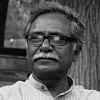
 For all latest news, follow The Daily Star's Google News channel.
For all latest news, follow The Daily Star's Google News channel. 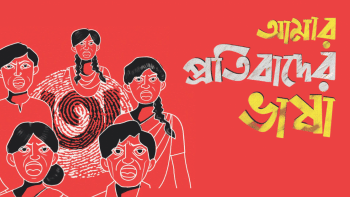
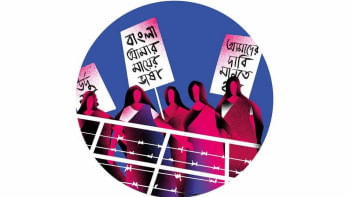
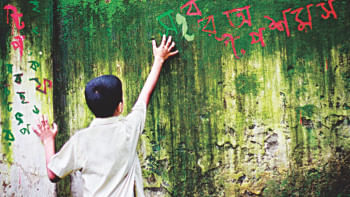





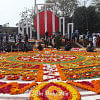


Comments